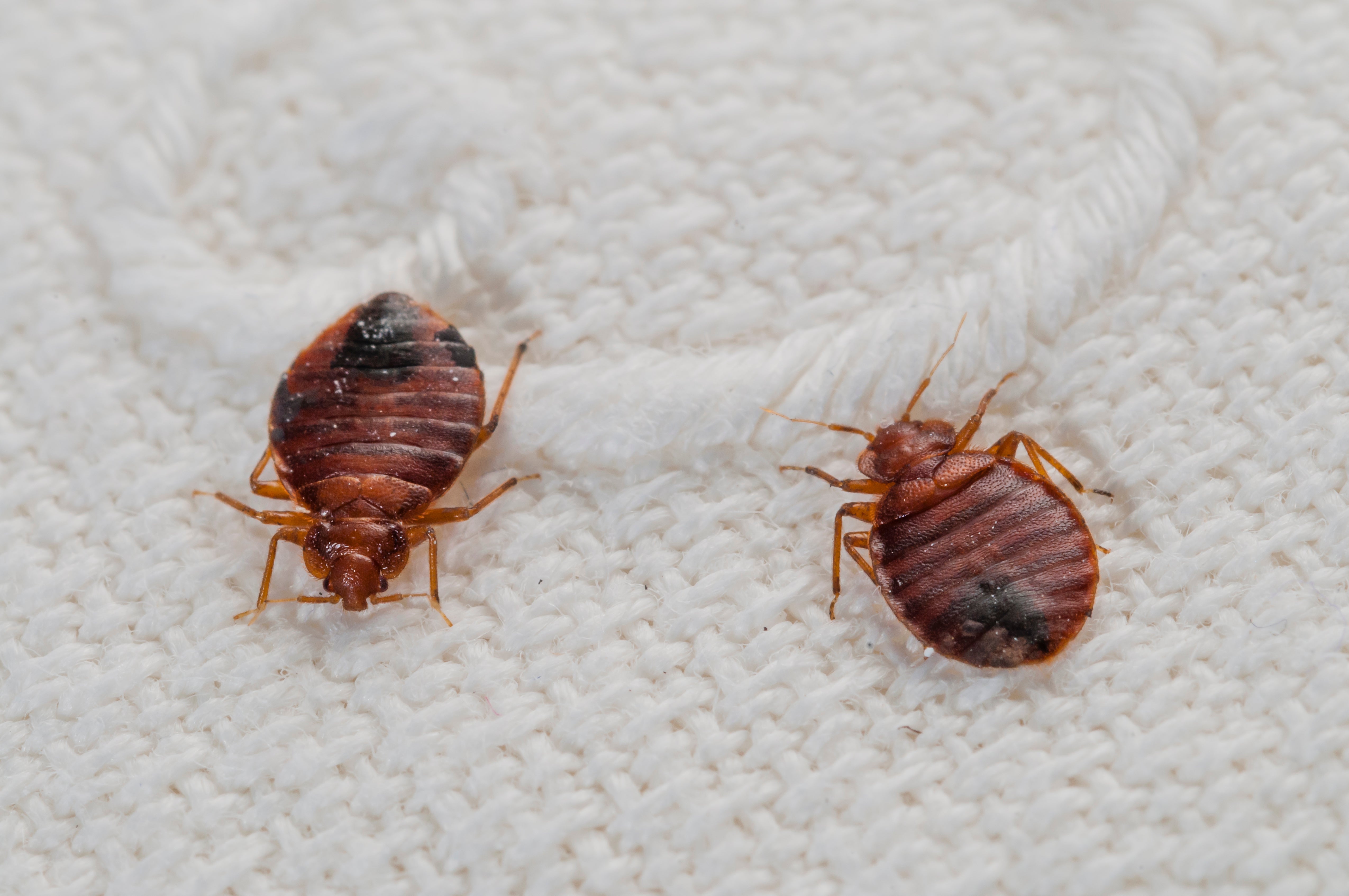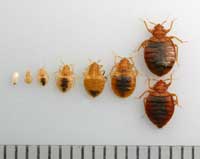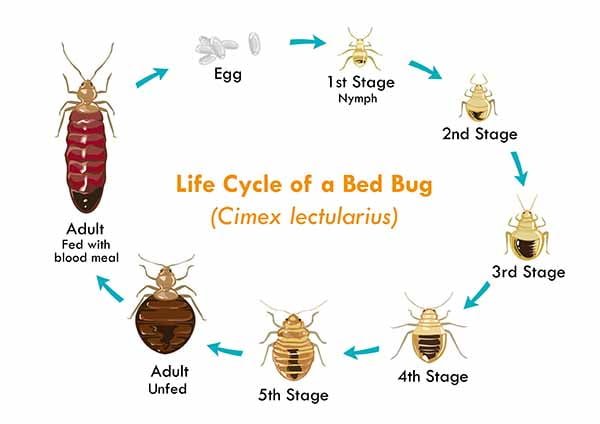Yes, bed bugs can die without a host, but they can survive for several months without a blood meal. Bed bugs are resilient pests that can live in various environments, including furniture, clothing, and walls.
They can survive by feeding on humans and animals when available, but they can also endure long periods without a host. Understanding the behavior and survival tactics of bed bugs is crucial for effective pest control and prevention. We will explore the lifespan of bed bugs without a host, their ability to infest different areas, and how to detect and eliminate these persistent pests from your home.
By learning more about the habits of bed bugs, you can take proactive measures to keep your living spaces free from infestations.
Lifecycle Of Bed Bugs
Bed bugs are persistent pests that can cause sleepless nights for many people. Understanding the lifecycle of bed bugs is crucial in managing infestations. From egg to adult, each stage has its unique characteristics and behaviors. Let’s explore the lifecycle of bed bugs to better comprehend their life without a host.
Egg Stage
The first stage in the bed bug lifecycle is the egg stage. When a female bed bug lays eggs, she can produce up to hundreds during her lifetime. These tiny, white eggs are typically laid in cracks and crevices near the host’s resting areas. Once laid, the eggs take about 6 to 10 days to hatch.
Nymph Stage
As the eggs hatch, nymphs emerge. Nymphs are smaller and translucent compared to adult bed bugs. They require a blood meal to progress to the next stage. In each of the five nymphal instars, they shed their exoskeletons, gradually darkening in color. Nymphs can live for several months without a blood meal in the right conditions.
Adult Stage
The final stage of a bed bug’s lifecycle is the adult stage. Adult bed bugs are reddish-brown, oval-shaped, and about the size of an apple seed. They are capable of surviving longer periods without feeding compared to nymphs. Under ideal conditions, an adult bed bug can live up to a year without a blood meal.
Survival Without A Host
Bed bugs are notorious for their ability to survive without a host. Understanding how long they can survive and the factors that influence their survival is crucial for effective pest management.
Duration Of Survival
Bed bugs can survive for several months without a blood meal. In ideal conditions, they have been known to live up to 4-6 months without feeding, while nymphs (immature bed bugs) can survive for even longer periods. Their survival duration greatly depends on various factors such as temperature, humidity, and access to harborage.
Factors Affecting Survival
- Temperature: Higher temperatures can accelerate their metabolism, leading to a shorter survival period without a host.
- Humidity: Low humidity levels can significantly reduce their survival time, while high humidity levels may aid in their survival.
- Access to Harborage: Bed bugs can seek shelter in cracks, crevices, and other hiding places, which can prolong their survival without a host.
- Previous Blood Meals: Bed bugs that have recently fed can endure longer periods without another blood meal compared to those who haven’t fed in a while.
Behavior Without A Host
Hiding Places
Bed bugs seek refuge in cracks, crevices, seams, and folds of furniture and textiles.
Hiding spots include mattresses, bed frames, headboards, and electrical outlets.
Hunger Periods
Bed bugs can survive weeks to months without feeding on blood.
During this time, they become dormant and conserve energy until a new host is available.

Credit: www.scientificamerican.com
Health Risks And Concerns
Bed bugs can survive for several months without a host, but they need blood to reproduce and continue their life cycle. While they can endure long periods without a meal, eliminating them entirely often requires professional pest control intervention to ensure complete eradication.
It’s essential to address a bed bug infestation promptly to mitigate potential health risks and concerns.
Transmission Of Diseases
Bed bugs may be tiny, but they can cause big health concerns. While they are not known to transmit diseases directly, they can play a role in the transmission of certain illnesses. When bed bugs bite an infected person, they can pick up viruses, bacteria, or parasites lingering on the skin. If the bugs bite another individual, they could transfer these pathogens, resulting in potential infections. While the chances of disease transmission from bed bugs are relatively low, it’s important to be vigilant and take appropriate precautions to minimize the risk.Allergic Reactions
Bed bug bites can lead to various allergic reactions in different individuals. Some people may exhibit mild symptoms like redness, itchiness, and swelling around the bitten area. However, others may experience more severe reactions, such as intense itching, blistering, or even anaphylaxis. Those with existing allergies or sensitivities are more prone to having severe reactions to bed bug bites. If you notice persistent or increasingly severe symptoms after a suspected bed bug incident, it is crucial to seek medical attention promptly.Detection And Prevention
Bed bug infestations can quickly become a nightmare for homeowners. The tiny pests are adept at hiding in cracks and crevices, making detection a challenging task. However, early detection is crucial for effective treatment. By knowing the signs of a bed bug infestation and taking preventive measures, you can save yourself from sleepless nights and costly extermination services.
Signs Of Bed Bug Infestation
If you suspect a bed bug infestation, it’s essential to be aware of the signs. By recognizing these indicators early on, you can take swift action to prevent the infestation from spreading further. Here are some common signs to look out for:
- Bite marks on your body, typically in a row or cluster
- Small bloodstains on your bedding or mattress
- Tiny dark spots on your sheets, pillowcases, or mattress (bed bug excrement)
- Musty odor in the affected area
If you notice any of these signs, it’s crucial not to panic. Instead, focus on taking immediate action to eradicate the infestation and prevent it from spreading to other areas of your home.
Preventive Measures
Prevention is always better than a cure, especially when it comes to bed bugs. By implementing preventive measures, you can significantly reduce the likelihood of a bed bug infestation in your home. Here are some effective strategies to keep these pesky insects at bay:
- Inspect any secondhand furniture or clothing before bringing them into your home.
- Seal cracks and gaps in walls, floors, and furniture to eliminate potential hiding spots for bed bugs.
- Regularly vacuum your home, focusing on areas where bed bugs may hide, such as mattress seams, bed frames, and baseboards.
- Wash and dry your bedding, linens, and clothing on high heat to kill any potential bed bugs or eggs.
- Use mattress and box spring encasements to protect your bedding from infestation and make it easier to spot any signs of bed bugs.
- Keep your home clutter-free to minimize hiding spots for bed bugs.
- Consider installing bed bug traps and monitors to detect any signs of infestation.
By following these preventive measures and staying vigilant, you can significantly reduce the chances of a bed bug infestation in your home. Remember, early detection and swift action are key to keeping these unwelcome guests at bay.

Credit: ipm.ucanr.edu
Treatment Options
Bed bugs can survive for several weeks without a host, but eventually die without a blood meal. Treatment options include professional extermination, heat treatment, and insecticide sprays to effectively eliminate bed bugs and prevent infestations. Regular inspection and maintenance are essential for long-term prevention.
Professional Extermination
Diy Methods
When it comes to treating a bed bug infestation, there are both professional extermination and DIY methods available.
Professional Extermination: Hiring a professional bed bug exterminator can provide effective and thorough treatment.
DIY Methods: There are also DIY methods that can help eliminate bed bugs if the infestation is caught early.
Some common DIY treatment options include:
- Vacuuming thoroughly and disposing of the bag immediately
- Washing infested bedding and clothing in hot water
- Using bed bug powders or sprays
- Encasing mattresses and pillows with bed bug-proof covers
It’s essential to combine various treatment methods for maximum effectiveness in eliminating bed bugs.

Credit: www.terminix.com
Frequently Asked Questions On Do Bed Bugs Die Without A Host?
Do Bed Bugs Die Without A Host?
Yes, bed bugs can survive without a host for several months. While they prefer feeding on human blood, they can feed on animals too. Bed bugs are resilient and can hide in cracks, crevices or furniture during their dormant period, waiting for a new host to feed on.
Regular cleaning and vacuuming can help control them.
How Long Can Bed Bugs Live Without Feeding?
Bed bugs can survive without feeding for up to 6 months. During this time, they enter a dormant state and conserve energy. They can withstand extreme temperatures and can hide in various places, making it difficult to detect and eliminate them.
It’s important to take proactive measures to prevent and control bed bug infestations.
Can Bed Bugs Reproduce Without A Host?
No, bed bugs cannot reproduce without a host. They require a blood meal to develop and lay eggs. Once they have fed, they can mate and the female bed bugs can lay eggs, leading to an infestation. Without a host to feed on, bed bugs cannot reproduce and their population will decline over time.
How Do Bed Bugs Find A Host To Feed On?
Bed bugs are attracted to their hosts by the carbon dioxide released when they breathe. They also sense body heat and detect chemical signals like pheromones. They can sense these signals from several feet away, which helps them locate a host to feed on.
Bed bugs are skilled at hiding and waiting for the right moment to feed.
Conclusion
While bed bugs can survive without a host for several months, they eventually die. Proper pest control is vital to eradicate them completely. Understanding their behavior helps prevent infestations and protect your home. Stay vigilant and take necessary measures to keep your living space free from these pesky insects.
Related posts:

I’m MD Tanvir, and I bring years of expertise gained from working closely with pest control companies to the forefront. My journey in the industry has inspired me to launch Bug Battler, a platform aimed at equipping people with the know-how to combat pests autonomously. Through Bug Battler, I aim to empower individuals with practical insights to tackle pest infestations effectively.

